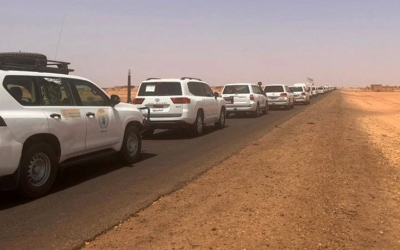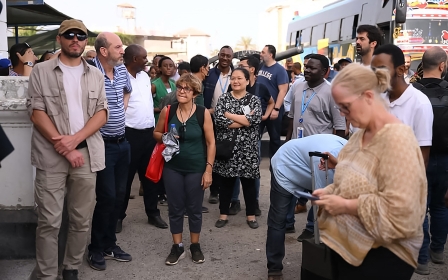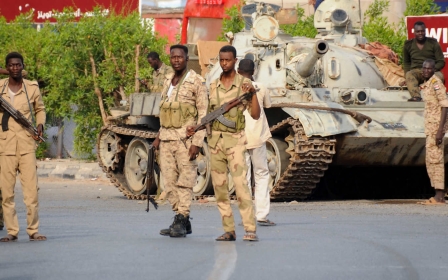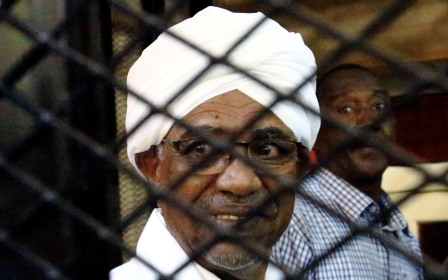Sudan turmoil: As violence in Khartoum worsens, refugees flock to Egypt
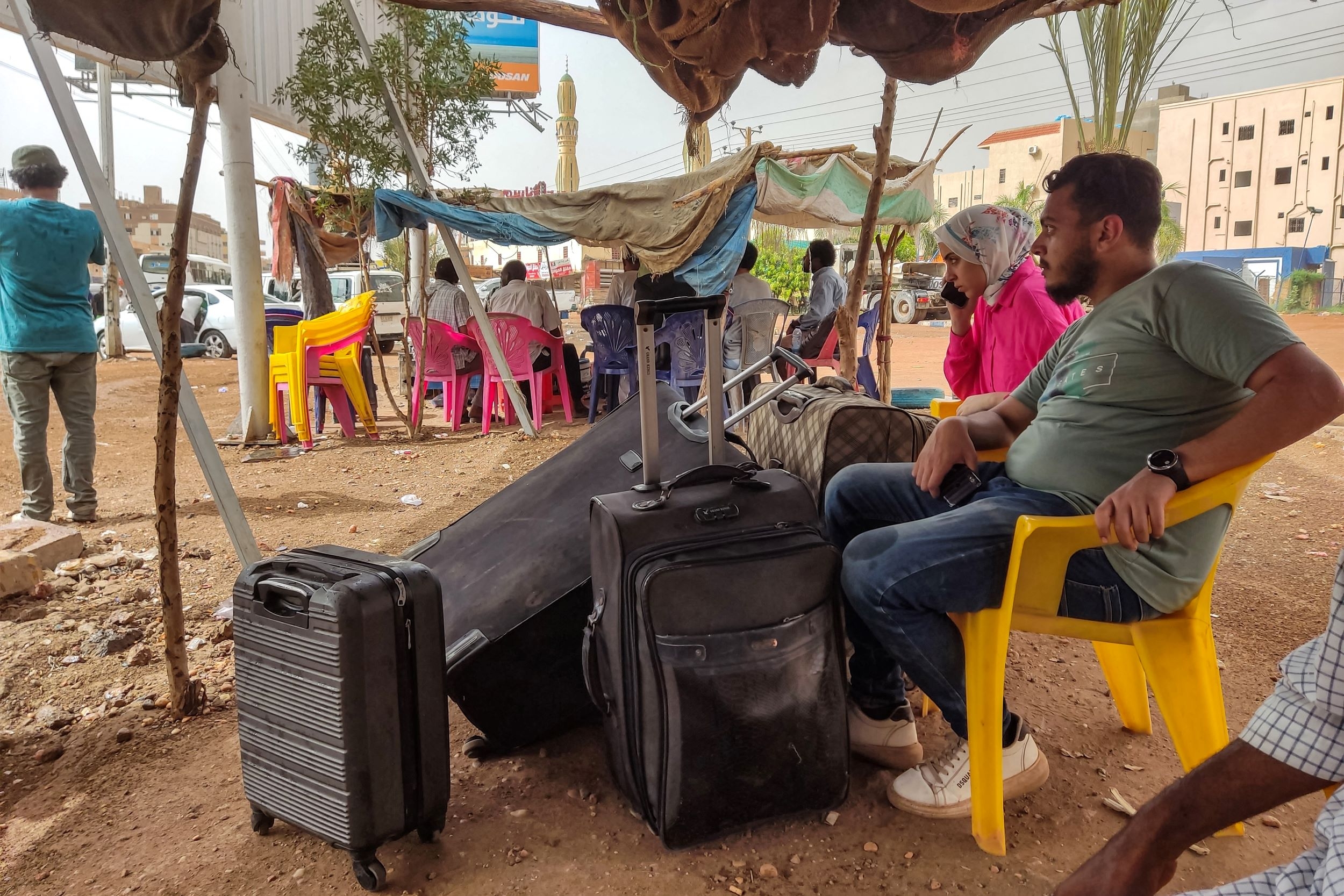
With violence raging in the Sudanese capital Khartoum, thousands of people have rushed to the Egypt-Sudan border crossing after a risky ride with high-priced bus tickets and long checkpoint waits.
On 22 April, Noon Abdelbassit, a 21-year-old medical student from Khartoum, arrived at the Argeen border crossing in southern Egypt, after an 850-kilometre journey that cost her $200.
She fled the capital with her brother and two uncles one week after a power struggle broke out in Sudan between the Sudanese army commander Abdel Fattah al-Burhan and the head of the paramilitary group Rapid Support Force (RSF), Mohamed Hamdan Dagalo (known as Hemeti).
Abdelbassit told Middle East Eye after arriving in Cairo, “the travel went super smoothly, thank God”. There were, however, a few times when she felt uneasy when passing through checkpoints in Khartoum, but the roads afterwards were safe.
She said that the journey was “extremely long and very tiring”. There were only two buses when she arrived at the border.
New MEE newsletter: Jerusalem Dispatch
Sign up to get the latest insights and analysis on Israel-Palestine, alongside Turkey Unpacked and other MEE newsletters
However, her friends told her that, two days after her arrival, there were around 40 buses at the border, as well as a dramatic increase in bus ticket prices.
Since fighting flared up in the country, more than 3,700 people have been injured and more than 420 have died, according to the World Health Organisation (WHO).
While Abdelbassit was able to cross the border, her brother and two uncles were not allowed in. They had to travel to Wadi Halfa, in northern Sudan, to apply for visas at the Egyptian consulate, which is currently closed due to the Eid-Al Fitr holiday.
At land crossings, Sudanese women and children are not required to have a visa to enter Egypt; only males aged 16-50 need one.
Rila, a 25-year-old engineer, left Khartoum with her 22-year-old sister. She told MEE there was no electricity, food or water in her building, only a constant barrage of gunfire and explosions.
As she arrived at Argeen last Sunday, 40 other buses arrived throughout the day. At the Egyptian border, staff told them they were understaffed and could not accommodate many people, leaving them to wait for many hours.
"It took a long time for the Egyptian border officials to process the paperwork. We waited on the bus from 5 pm [on Sunday] until 5 am on Monday," Rila said.
"People were very tired from the long travel. Some elderly people experienced dizziness and high blood pressure."
'Extremely bad'
Egypt's official state TV channel AlQahera News reported from the Argeen crossing on Tuesday that more than 100 buses carrying Egyptians, Sudanese and other nationalities had arrived at the border in the last few hours and that thousands of people are expected to arrive this week.
The Egyptian foreign ministry said on 23 April that 436 Egyptians safely reached the Sudan-Egypt border.
AlQahera's footage showed several ambulances at the Argeen border, Sudanese families leaving buses with their luggage, and many Egyptian truck drivers who were delivering goods to Sudanese towns, when the conflict erupted.
Earlier this week, a Sudanese lawyer, who preferred not to be identified, arrived at the Argeen border crossing with his mother and three- and six-year-old nephews. It took them 11 hours to get there. The crossing was relatively quiet at the time since the Eid al-Fitr holidays were just starting.
He told MEE that he was forced to leave as there was no food in supermarkets, no running water in homes, and even his house, in Kafouri, an upper-class district in Khartoum with an RSF presence, had been shot at twice.
The lawyer spent 70,000 Sudanese pounds ($123) on the bus trip from Khartoum to the border, and now with more people departing for Egypt, including his sister and brother, the "crisis exploiters" are increasing prices.
“The situation in Sudan is extremely bad,” he said, adding that he plans to extend his stay in Egypt since there was no chance of returning soon.
The Egyptian Initiative for Personal Rights (EIPR) estimates that there are between 2 million and 5 million Sudanese refugees living in Egypt, one of the largest Sudanese communities abroad. As of right now, there is no official estimate of how many Sudanese refugees will be forced to flee by the current crisis.
In response to the forecasted influx of refugees, many Egyptian activists have been campaigning on social media for visa-free borders for Sudanese, while Cairo-based charities have established emergency hotlines for refugees in need of medical help.
Middle East Eye delivers independent and unrivalled coverage and analysis of the Middle East, North Africa and beyond. To learn more about republishing this content and the associated fees, please fill out this form. More about MEE can be found here.


